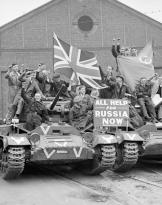As the Turks will continue to maintain garrisons in Cyrenaica, Italy will continue to occupy the Aegean islands that will later become an Italian possession, with the Lausanne treaty of the 1923.
- The state of war with the Ottoman Empire ceases for the personnel of the Royal Navy except the one in the land of Tripolitania and Cyrenaica.
The Italian losses combined together with 3451 dead (1483 in combat and 1948 due to illness) and injured 4221; Turkish-Arab losses were estimated at around 14.800 men. The two ships King of Italy and Queen of Italy during the war hospitalized and repatriated 30.680 sick (11.112 from the King of Italy - 9985 sick and 1127 injured - and 14.568 from the Queen of Italy) performing 55 travel (the King of Italy, 25) between Italy, Libya and the Aegean.
The costs of the war for the Navy were calculated in 157.900.019 lire divided between the various expenditure titles, of which the highest were represented by fuels (21,76%), extraordinary repairs to units (19,5%), rental and requisition of 145 merchant units (13,3%), ammunition (12,7%), personnel (6,8%) and the purchase of ships and floats (5,7%); high even if it was difficult to quantify them precisely the overall general costs: the figure closest to the truth is 1.700 million lire.
Significant losses of ships of war suffered by the Ottoman Navy: 14 units, including a battleship, a destroyer and three torpedo boats.
The Regia Marina came out worn out by the war that had imposed to the naval means, especially to the light shipping, a job with strong rate of friction with critical consequences on the material, in times now approaching a new and more exhausting war engagement. On the military-political level, the company ended up costing a sum of commitments, sacrifices, money and much more time than expected, to obtain the "box of sand" (which a sort of historical nemesis had to detect full of oil), Libya, as defined by Gaetano Salvemini.
But beyond the usual, even if understandable lamentations for a success that proved neither easy nor rapid, these unforeseen trials left an even deeper footprint in the national psyche than that which every war, lucky or unlucky, good or badly conducted, as a test collective of a people ends up making sediment at the bottom of his soul; and they gave, abroad and to the Italians, the image of an active, dynamic "Italietta", motivated by a spirit of aggressiveness that, if it is certainly latent in its people also as a spirit of self-defense, was now projected collectively on the overseas. This strange two-faced war had therefore shown a country capable of wide-ranging and even more demanding companies, if it had deemed it necessary: a competitor therefore to keep an eye on by the Western maritime powers which in fact since then opened the eyes to remember.
The medal table: two gold medals for military value (one of which is in memory), 62 silver medals for military value (of which you are in the memory) and 245 bronze medals for military value (of which you are in memory); gold medal for military value to the flag of the Landing Forces and gold medal for military value to the high seas torpedo boats of the Dardanelles Squadron.
Source: Military Navy












